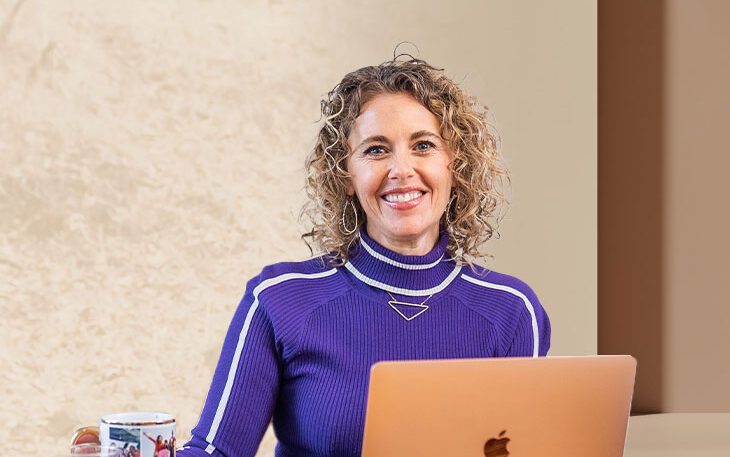If you’ve ever regained the weight after a diet, you are not alone.
What are the actual stats on weight in the U.S.?
From the CDC’s website page¹.
-
“The prevalence of obesity was 42.4% in 2017~2018.
-
From 1999–2000 through 2017–2018, the prevalence of obesity increased from 30.5% to 42.4%, and the prevalence of severe obesity increased from 4.7% to 9.2%.
-
The estimated annual medical cost of obesity in the United States was $147 billion in 2008 US dollars; the medical cost for people who have obesity was $1,429 higher than those of normal weight.”
Also from the CDC, approximately 71.6% of the U.S. is overweight.²
The CDC goes on to say, “There is no single or simple solution to the obesity epidemic. It’s a complex problem and there has to be a multifaceted approach.”³
Hormones, genes, medications, age, endocrine-disrupting chemicals, and food choices all play a part.
But, there’s a missing piece of the weight loss puzzle:
The piece my addiction medicine eye catches is the emotional component: emotional eating drives weight gain as much as any of these other components, but no diet can address it.
Emotionally-driven eating
What is emotionally-driven eating?
Let me give some examples:
-
Have you ever found yourself at the end of the day frazzled? Too much to do and not enough time? Stressed? And then you find yourself mindlessly eating cookies, candy, or ice cream?
-
Have you ever wondered why you have “comfort food” or a “food blankie” or a type of food you just can’t say no to?
-
Have you ever made rules to limit sweets or salty or other treats from your week because they seem too addictive?
-
Do your diets exclude the foods you most love?
-
Do you eat too much when you are around friends, family, or strangers?
-
After going through a very difficult time in your life, did you find yourself gaining weight and you didn’t know why?
Emotional eating is basically this: trying to meet an emotional need with food.
Trying to meet an emotional need with food will cause weight gain.
How do you address the weight gain from emotionally-driven eating?
-
Dieting? No. Almost 72% of the population is overweight. In fact, diets can make weight gain radically worse. Diets create the “forbidden fruit” monster I see in my opiate, cigarette, and alcohol addicted patients. They create a binge/restrict cycle that causes rebound weight gain, or “Yoyo dieting.”
-
Ignoring the emotions and powering through? No. This is similar to white-knuckling it or using willpower to “just say no” to drugs or alcohol. It does not work with food either. This approach can lead to a sense of demoralization, depression, and helplessness.
-
Appetite suppressants or surgery? No. This still does not get to the root problem.
All of these fixes are only band-aids. They are merely keeping you focused away from your true need, which is emotional. You can’t meet an emotional need with a behavioral fix.
You have valid emotional needs that will continue to drive you until they are attended to and befriended.
There can’t be permanent weight loss and management until the emotional relationship with food is given attention. Otherwise, fighting your weight with chronic dieting, diet pills, surgery, or extreme measures will backfire.
You need a separate emotional management strategy if you eat out of stress, boredom, or any other mood.
Without one, you will be managed by your moods and subject to the mixed messages about food in our society:
-
Advertisements of very happy thin people eating large quantities of food.
-
Being raised in a family where food meant love and comfort.
-
Being raised in a restrictive environment where the food was withheld for punishment or behavior control.
The last one in particular is a very painful one. If you were raised in a punitive or abusive family, food might have been your only source of comfort. Those memories keep people from wanting to feel their feelings or bodily sensations. Those memories keep people from feeling safe in lower weight bodies, or from even detecting what their emotional needs actually are.
We aren’t taught emotional management strategies or even how to feel compassion for ourselves.
Yet, do you beat yourself up mercilessly for not losing the weight and keeping it off? Do you know how to stop condemning yourself? Do you know how to be gentle and kind with yourself? You cannot hate fat away. You cannot beat yourself up until you lose weight. Shame, guilt, fear and self-judgment don’t work.
This is why I created a program for emotional eating.
As a physician board-certified in addiction medicine and internal medicine, and now trained as an EFT (tapping) practitioner, I realized there was a huge need for addressing the missing piece: separating the emotional need from the food need. And as a former emotional eater, I know how impossible it feels before it feels possible. This is why I created the program Creating the Life You Love, beyond Emotional Eating.
If you relate to emotional eating, the struggles of dieting and regaining the weight, or just need a new emotional management strategy, please BOOK A FREE CALL with me. We will discuss what your weight, eating, and health issues are. We will discuss whether my program is a good fit for you.

Dr. Leslie Cole
As a medical student, I always knew that I wanted to help people live happy and fulfilling lives; upon finishing my residency in 1998 I saw a chance to make that happen as a physician and now as a personal coach to people fighting addiction and self-blocking behaviors. With my medical training, as well as 7 years of addiction training, behind me, I sought the most effective ways to help those who struggle with addiction turn their lives around. 22 years later, I am now considered one of the best.
*************************************************************************************
¹https://www.cdc.gov/obesity/data/adult.html accessed 6/11/20
²https://www.cdc.gov/nchs/fastats/obesity-overweight.htm accessed 8/15/20
³https://www.cdc.gov/obesity/strategies/index.html accessed 6/11/20
This article is for information and educational purposes only and is not medical or psychological advice, diagnosis, or treatment. It’s solely intended for your own self-improvement and does not replace the advice and services of health care professionals. You are advised to seek professional advice as appropriate before making any health decision.










